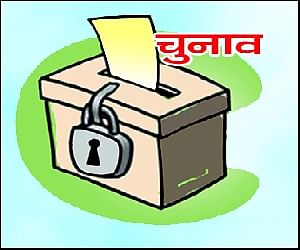Introduction: The Pillars of Democratic Governance
In the tapestry of democratic governance, the Election Commission stands as a bastion of integrity, entrusted with the formidable task of conducting free, fair, and transparent elections. As we embark on an exploration of its role and functioning, we unravel the significance of the Election Commission in upholding the foundational principles of democracy.
Understanding the Election Commission: Pillar of Electoral Integrity
The Election Commission of India (ECI) serves as the apex body responsible for overseeing the electoral process in the world’s largest democracy. Established in 1950 under the provisions of the Constitution of India, the Election Commission operates autonomously, insulated from political interference, to ensure impartiality and fairness in elections. Comprising a Chief Election Commissioner (CEC) and two Election Commissioners, the ECI operates as a tripartite body entrusted with the task of conducting elections at the national, state, and local levels.
Functions of the Election Commission: Upholding Democratic Values
The Election Commission executes a myriad of functions aimed at safeguarding democratic principles and promoting electoral integrity. Its core functions include the delineation of electoral constituencies, preparation of electoral rolls, conduct of elections, enforcement of the Model Code of Conduct, and adjudication of electoral disputes. Through these functions, the Election Commission endeavors to foster a level playing field for political parties and candidates, ensure the sanctity of the electoral process, and uphold the democratic rights of citizens.
Role of the Election Commission in Election Management
Central to its mandate is the meticulous management of electoral processes, encompassing voter registration, candidate nomination, polling, counting of votes, and declaration of results. The Election Commission leverages technological innovations, such as electronic voting machines (EVMs) and voter verifiable paper audit trails (VVPATs), to enhance the efficiency, transparency, and credibility of elections. Additionally, it conducts voter awareness campaigns, voter education programs, and training sessions for election officials to promote voter participation and awareness.
Ensuring Electoral Integrity: The Model Code of Conduct
One of the hallmark features of India’s electoral framework is the Model Code of Conduct (MCC), a set of guidelines issued by the Election Commission to regulate the conduct of political parties and candidates during elections. The MCC aims to prevent electoral malpractices, maintain a level playing field, and ensure fair competition among political contestants. Through its stringent enforcement, the Election Commission seeks to uphold the ethical standards of electoral campaigning and foster public trust in the electoral process.
Conclusion: Safeguarding the Democratic Edifice
In conclusion, the Election Commission stands as a beacon of democratic governance, embodying the principles of impartiality, transparency, and integrity. Through its tireless efforts, the Election Commission fortifies the democratic edifice, ensuring that the voice of the people resonates freely and fairly in the corridors of power. As guardians of electoral integrity, the Election Commission reaffirms the foundational values of democracy, underscoring the significance of free and fair elections as the cornerstone of democratic governance.

